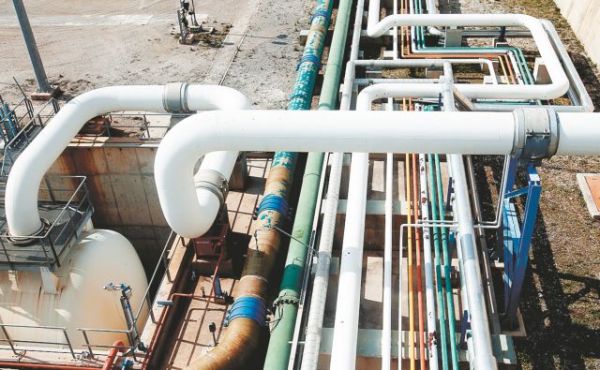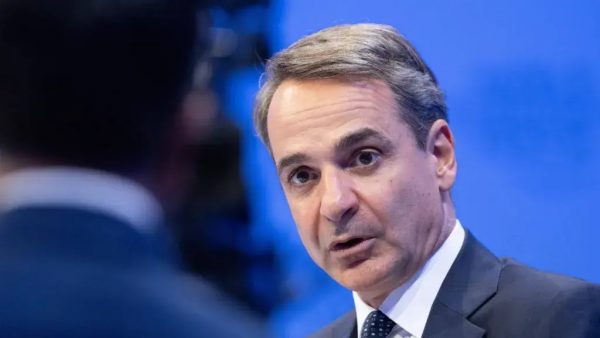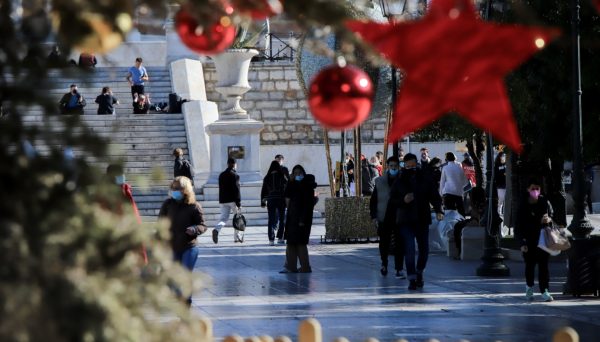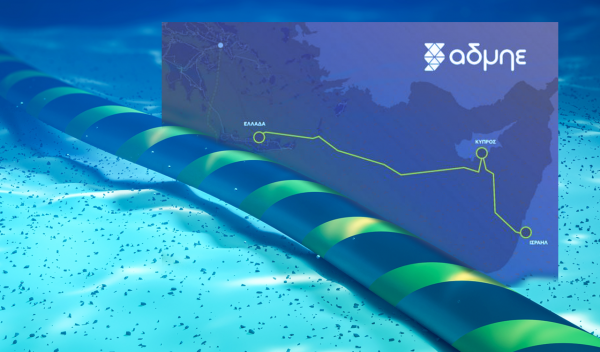
Greece is outside the European map of Underground Gas Storage Facilities, failing for years to utilize the depleted natural gas field of South Kavala in order to turn it into a fuel storage facility.
At a critical juncture in which the EU has decided to divest its members from Russia’s Gazprom and as a first step to fill the existing UGSFs in view of the next difficult winter, Athens seems to be hindering the ongoing competition of the HRADF for the development of UGSF South Kavala. An infrastructure that would additionally shield the country’s energy system as it would have, in addition to DESFA LNG Terminal, another useful reserve to meet its natural gas needs.
170 UGSFs in Europe
According to data collected by OT, there are 170 LNG facilities in the EU. The capacity of the underground warehouses amounts to more than 121.1 billion cubic meters of natural gas or 4.2 trillion cubic feet with 42% of them located in Germany (60 UGSF – 31 billion cubic meters), 16 in France, 13 with a capacity of 15 billion. sq.m. in Italy and an additional seven under construction in that country. The Netherlands is also among states with 5 LNG high capacity gas storage facilities. In the Balkans Romania has a large number of storage facilities with a total capacity of 2.5 billion. cubic meters.
The EU Following the Russian invasion of Ukraine and the pre-war energy crisis when Gazprom did not fill eight of its facilities in Europe, it ordered its member states to fill all their facilities to ensure gas reserves. next winter.
The case of N. Kavala
Greece is absent from this initiative as the tender for the development of infrastructure in N. Kavala has been stuck for more than six months in the delay concerning the issuance of the pricing regulation by the Regulatory Authority for Energy. RAE finally gave a public consultation but although it expired on March 14, it gave another extension until the end of the month. Market sources tell OT that with these data it is doubtful whether at the end of May the potential investors will be able to give binding offers, so that from the end of 2022 to the beginning of 2023 the investments for the conversion of the old submarine deposit of South Kavala to a UGSF will have started.
What this means
“The creation of underground storage in Greece”, according to competent officials, “in order to increase the level of security of supply of the country with natural gas and not to lead the National Natural Gas System (NSF) to extreme situations, is one way”. As the same circles explain to OT: “As our country does not have an underground gas storage, it is crucial for the HRADF tender for UGSF South Kavala to proceed and succeed. In a prolonged crisis, in countries without underground gas storage facilities, the shortage of supply from one or more sources is usually compensated either by emergency gas imports or, if these are not possible, sufficient or timely, by cuts in deliveries to consumers. ”
An underground storage infrastructure is a significant investment for any Natural Gas Transmission System as it contributes significantly to the optimization of its operation (load balancing, gas hub) and strengthens the energy security of the natural gas market (security of supply) at national and European level, to benefit of the final consumer.
Energy crises and sufficiency
The underground storage facility is a tool that offers a variety of support mechanisms to limit and prevent security of supply crises. Indicatively, the underground storage facilities can function as an additional entry point to the Transmission System, thus increasing the level of security of supply of the country with natural gas. In UGSFs, significant quantities of natural gas are stored on a long-term basis, either for commercial purposes or for use in times of need – it is estimated that when the underground storage in South Kavala is constructed, natural gas can be stored for 20 days, a period considered by experts large and crucial to “absorb” shocks in sufficiency, but also in gas prices.
It is worth emphasizing that Greece and Europe are experiencing the third serious energy crisis. The previous two in 2012 and the period 2016-2017 were caused due to the lack of necessary quantities of natural gas. Our country was found on a precarious “tightrope” to meet the needs and it achieved this thanks to the LNG Terminal in Revythousa. Now, that alone is not enough, according to the remarks of competent officials.
Latest News

DM Dendias: We talk With Turkey But We Always Bring Up Their Unacceptable Positions
Second and last day of closely watched conference, entitled 'Metapolitefsi 1974-2024: 50 Years of Greek Foreign Policy', also included appearances by PM Mitsotakis, Ex-PM Tsipras and PASOK leader Nikos Androulakis, among others

Rhodes Airport Tops Fraport Greece’s Regional Airports in 2024 Performance
According to Fraport's data, more than 35 million passengers (specifically 35.2 million) were handled by Fraport-managed airports during the 11 months.

European Central Bank Cuts Interest Rates by 25 Basis Points
It is the fourth cut of interest rates by Europe’s central bank, a move expected by the markets and financial analysts leading to the rate settling at 3%.

Airbnb: New Measures Add €600 in Extra Costs for Property Owners
Property managers face an immediate administrative fine of 5,000 euros if access to the inspected property is denied or any of the specified requirements are not met.

Economist: Greece Included in the Best Performing Economies in 2024
Meanwhile, Northern European countries disappoint, with sluggish performances from the United Kingdom and Germany.

EasyJet Expands Its Routes from Athens
The airline’s two new routes will be to London Luton and Alicante and they will commence in summer 2025.

Capital Link Forum Highlights Greece’s Economic Resurgence; Honors BoG Gov Stournaras
Capital Link Hellenic Leadership Award recipient, Bank of Greece Gov. Yannis Stournaras, an ex-FinMin, was lauded for his pivotal role during Greece’s economic recovery

Tourist Spending in Greece Up by 14%, Visa Card Analysis Shows
Greece’s capital Athens emerged as the most popular destination, recording a 17% increase in transactions with Visa cards, surpassing even the cosmopolitan island of Mykonos.

Inflation in Greece Unchanged at 2.4% in Nov. 2024
The general consumer price index (CPI) posted a 0.4% decrease in November compared to the previous month

2024 Christmas Holidays: Extended Shop Hours Schedule
The 2024 Christmas Holidays extended shop hours schedule commences on Thursday, December 12 and runs until the end of the year.



![Φυσικό αέριο: Δυναμικό come back του LNG στην Ελλάδα [γραφήματα]](https://www.ot.gr/wp-content/uploads/2023/01/OT_naturalgas-90x90.jpeg)











![Fraport: Πάνω από 35 εκατ. επιβάτες στα αεροδρόμια το 11μηνο – Πτώση στη Μύκονο [πίνακας]](https://www.ot.gr/wp-content/uploads/2022/06/fraport-90x90.jpg)


























 Αριθμός Πιστοποίησης Μ.Η.Τ.232433
Αριθμός Πιστοποίησης Μ.Η.Τ.232433